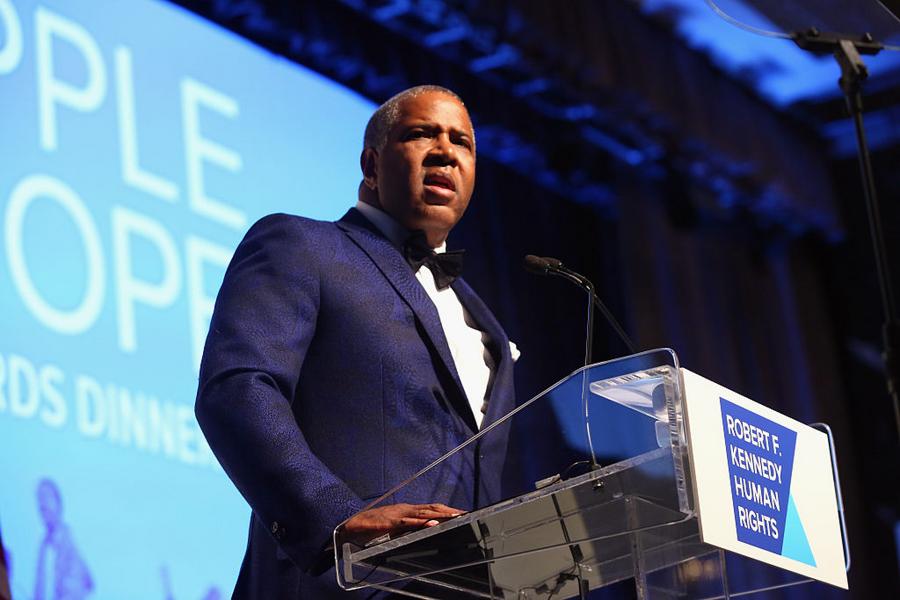The reported tax probe into billionaire Robert Smith has reached a mutually acceptable conclusion, according to the Wall Street Journal. The probe, which had gone on for years, centered on about $30 million in back taxes allegedly evaded by Smith, who has agreed to pay that plus an $85 million penalty and around $25 million in interest.
That comes to about $140 million altogether, which Smith has consented to pay in exchange for a non-prosecution agreement with the Department of Justice. That means that the settlement will also include an admission of the tax liabilities as well as improper tax filings, but he won't face prosecution for the matter as long as he pays what he owes and follows a few other terms and conditions.

Astrid Stawiarz/Getty Images
The settlement puts a lid on an investigation that's been going on for at least four years into over $200 million in financial assets that Smith's Vista equity fund had set up in business entities in the Caribbean. Those assets, the investigation showed, ended up under the control of Smith's charitable Fund II Foundation, but without any US taxes being paid in between. Smith paid taxes on money that went directly to him while ignoring the taxes on everything else, which now Smith and the Justice Department both agree was a wrong that will now be made right thanks to the settlement.
Smith founded Vista in the year 2000 thanks largely to a billion dollar investment from businessman Robert Brockman, who is also under investigation on suspicion of tax fraud for his involvement in the off-shore accounts.
The probe into Vista is only the latest example of the US attempting to crack down on tax avoidance by holding money overseas over the last several years. In 2008 the DOJ took UBS Group to court over untaxed income in famous secret Swiss bank accounts, securing a settlement of $740 million, while Credit Suisse Group got slapped with a $2.6 billion bill over helping wealthy Americans file fraudulent tax returns in order to avoid taxes. Altogether, more than 56,000 Americans have settled with the IRS for over $11.1 billion between 2009 and 2018, according to the WSJ story.
/2020/08/GettyImages-500497874.jpg)
/2021/11/robert2.jpg)
/2017/06/GettyImages-500497874.jpg)
/2019/05/robert.jpg)
/2019/09/GettyImages-891987010.jpg)
/2019/05/moor.jpg)
/2021/10/John-Boyega.jpg)
/2010/11/josh.jpg)
/2022/05/Nayib-Bukele.jpg)
:strip_exif()/2020/06/taylor.png)
/2010/11/russell-armstrong.png)
/2013/07/courtney-henggeler.jpg)
/2021/12/Lauren-Sanchez.jpg)
/2020/10/cate.jpg)
/2018/04/GettyImages-942450576.jpg)
/2021/08/bert-kreisher.jpg)
/2021/09/tom-segura.jpg)
/2023/09/john-mars.png)
/2010/01/Orlando-Bloom.jpg)
/2020/10/neil-young.jpg)
/2010/06/dario.jpg)
/2014/01/GettyImages-539540466.jpg)
/2012/08/broner.jpg)